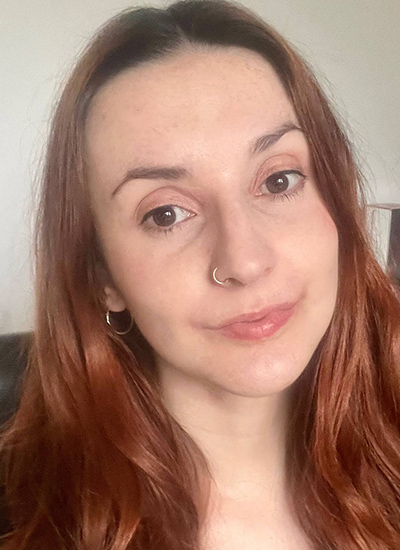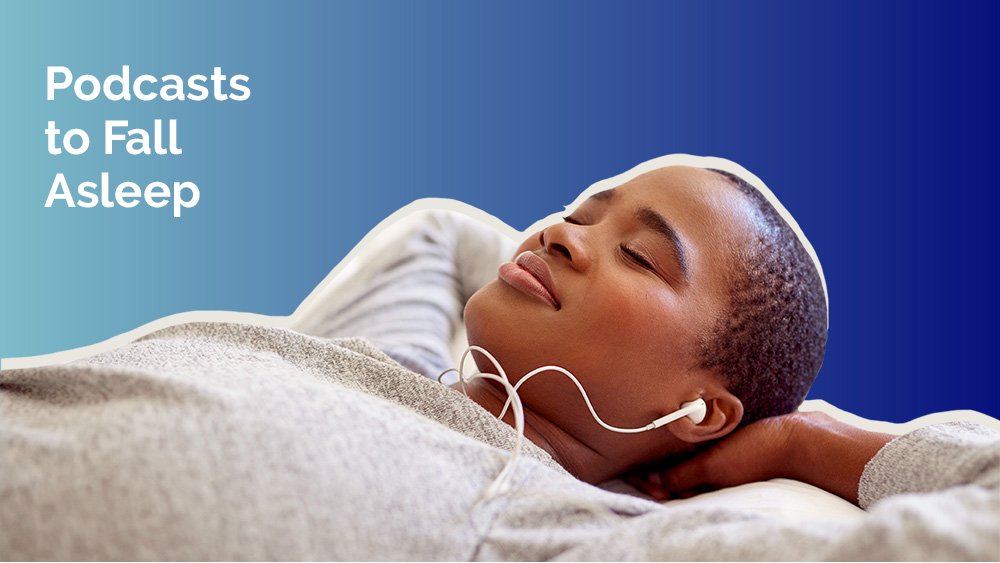
I’ve been using podcasts to fall asleep lately, specifically ones that feature ASMR role-plays of banal everyday conversations. I turn off the lights and lay in the dark, listening to the chatter of colleagues and the clicking of keyboards in an office, or reception staff checking people into a hotel, or maybe someone explaining their skincare routine to me in weirdly specific detail…
The pleasant, low-level conversations are surprisingly soothing, as though listening to people talk about nothing is a welcome respite from the millions of things running through my head on a daily basis. Before I know it, my cyclical and sometimes anxious thoughts about work deadlines, administrative life tasks, and “what am I doing with my life?!” panic breaks up and drifts away. I usually fall asleep with the chatter playing in the background and wake up in the morning with my headphones tangled somewhere under my duvet.
According to Jeff Kahn, sleep expert and co-founder of sleep tracking app RISE, this is not an uncommon reaction to these podcasts. “Listening to podcasts can be useful in falling asleep by relaxing you before bed and preventing anxious rumination that can delay sleep,” he explains. “The act of listening to a podcast can help to create a bedtime routine that signals to the body that it is time to sleep.”
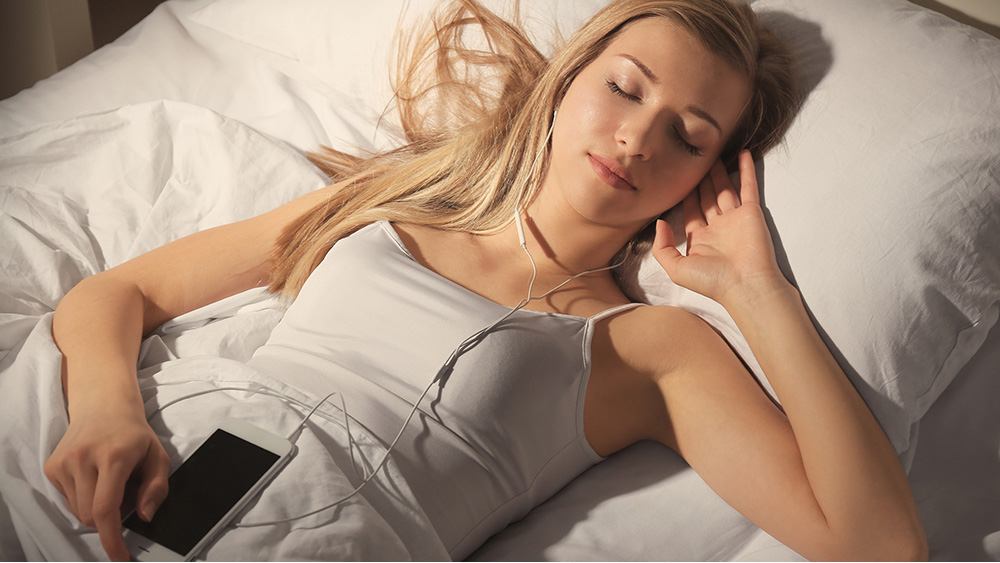
I’m not the only one who’s turned to podcasts to try and drift off. Although research on exactly how many people tune into podcasts before sleep is a little sparse, one 2019 survey from Edison Research found more than half of the close to 6,000 podcast consumers surveyed in the US listen to podcasts as a way to relax before falling asleep.
On top of that, recent years have seen an explosion in podcasts intended to help listeners sleep better. There are podcasts like Sleep With Me — a show which lulls listeners to sleep via dull and winding stories that lead nowhere — and ones like Sleep Magic, a hypnotherapist-hosted podcast which aims to get listeners to nod off via breathing exercises and muscle relaxation techniques.
Others online report listening to podcasts that are generally more intended for daytime listening – whether it be comedy, current affairs or your favorite celebrities talking to each other. For someone like me, who’s spent a lifetime battling an overactive imagination before I go to bed, this sounds like too much for my brain to handle. Yet most nights I find myself frantically searching for my headphones as the sun sets, wanting to be soothed by sleepy voices in an attempt to quieten my own interior monologue that sometimes keeps me awake.
So when I discovered my headphones had run out of battery right before bed time recently, I found myself annoyed and dreading the quietness ahead of me. Was I supposed to go to sleep to silence now?
For Dr Lindsay Browning, neurologist, psychologist and sleep expert at And So To Bed, this can be one of the drawbacks of listening to a podcast before sleep – you can get so used to it, it becomes strange to try and sleep without it.
“Although listening to podcasts in bed can be helpful for the occasional night where you’re struggling to switch off, as a general rule, they aren’t great for long-term sleeping problems,” she says. “When you’re listening to somebody talking to you in bed, the noise can actually be harmful for sleep because your brain is being encouraged to stay awake and listen to whatever the person is saying. We sleep better in dark and silence, and therefore listening to podcasts isn’t an ideal environment for sleep. You might even fall asleep, and the sound of the podcast might wake you up again.”
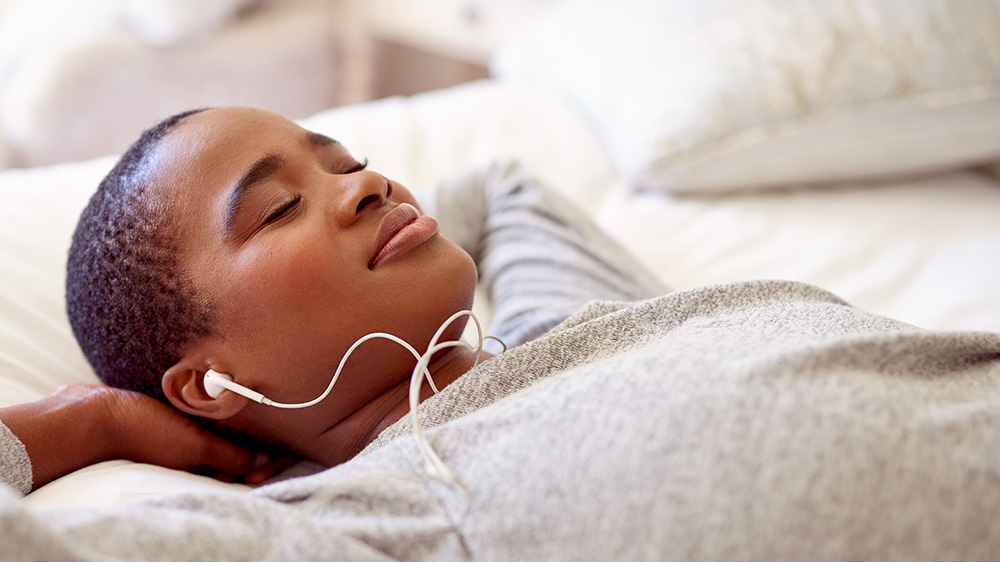
Dr. Zeeshan Afzal, MD and medical officer at healthcare platform Welzo, agrees that listening to podcasts can become a habit that is hard to break and he advises to make sure you’re not listening to podcasts that are too stimulating. He also says the stage of sleep you’re in while the podcast is playing can impact how aware you are of the sounds you’re hearing.
He says: “During REM sleep, for example, the brain is more active and may be more likely to process the sounds from the podcast. However, individual differences in sleep patterns mean that this may not be true for everyone.”
This can partly be avoided by making use of the ‘sleep timer’ available on many podcast apps, which will shut off your sound after a time you set. But is listening to podcasts before I sleep actually harming my sleep in the long run?
“We know the best ‘sound’ for healthy sleep is silence,” Rise app’s Jeff adds. “Noise can keep you from falling asleep and can also disturb the sleep you get. Sudden noises can wake you up, but ongoing noise can reduce the quality of your sleep.
“If it doesn’t wake you up completely, it reduces how deeply you enter each stage of sleep. Research shows that if you habituate yourself to a noise so that it doesn’t wake you, you’ll still experience shallower, less restorative sleep.”
All the experts I spoke to said that listening to podcasts to help you sleep wasn’t ultimately harmful, but they recommended being cautious about it, not overdoing it, and making sure you’ve checked off other areas of sleep hygiene as well if you’re having ongoing sleep issues: no caffeine and alcohol before bed, limit blue light from devices in the evenings, using stress management techniques like meditation and exercise and trying to sleep and wake at the same time each day.
So, will I be ditching my bedtime podcast habit? Probably not entirely, but I will be forcing myself to fall asleep to the cold, hard sound of silence more often – even if just to convince myself that it’s not so bad after all.
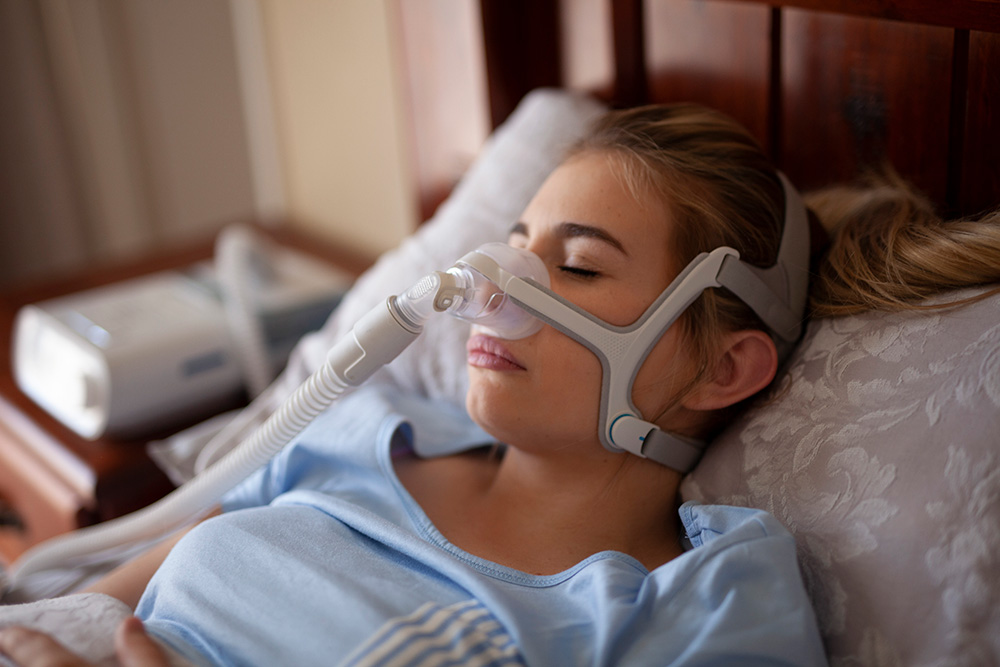
If We Want People to Use Their CPAP Machines, They Need to Be Easier to Use: Opinion
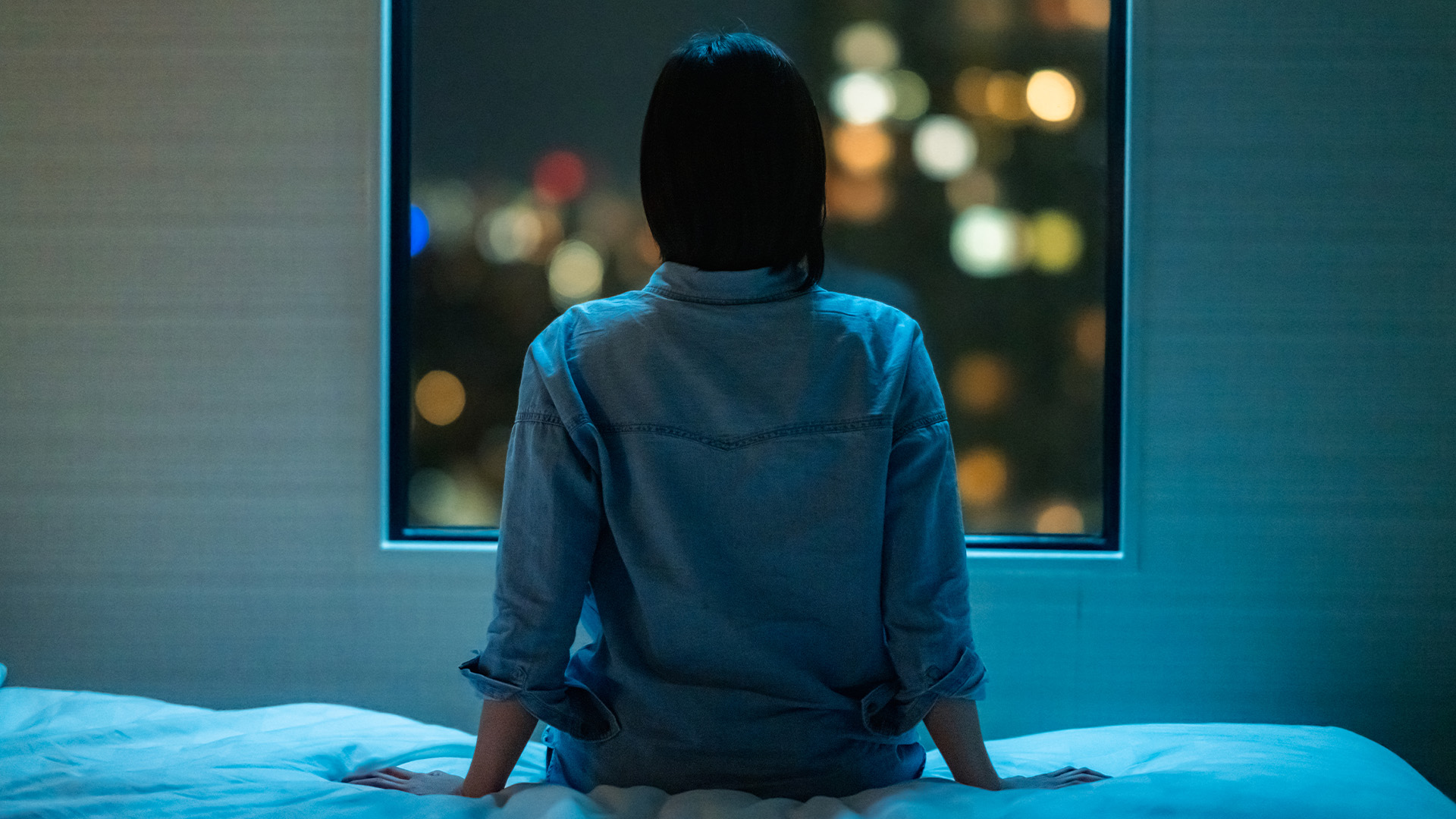
I Had Sleep Apnea For Almost 30 Years: The Inspire Implant Has Been Life-Changing

Why I Started a Sleep Podcast for Women With (Sometimes Scary) Symptoms Like Mine

Can This Swiss Brand’s Science-Backed Sleepwear Really Cure Everything From Insomnia to Hot Flashes?
Sources
Kahn, Dr. Jeff. Personal interview. April 2024.
Afzal, Dr. Zeeshan. Personal interview. April 2024.
Browning, Dr. Lindsay. Personal interview. April 2024.
Edison Research and Triton Digital, The Infinite Dial, “The Podcast Consumer 2019,” 2019. http://www.edisonresearch.com/wp-content/uploads/2019/04/Edison-Research-Podcast-Consumer-2019.pdf.



























